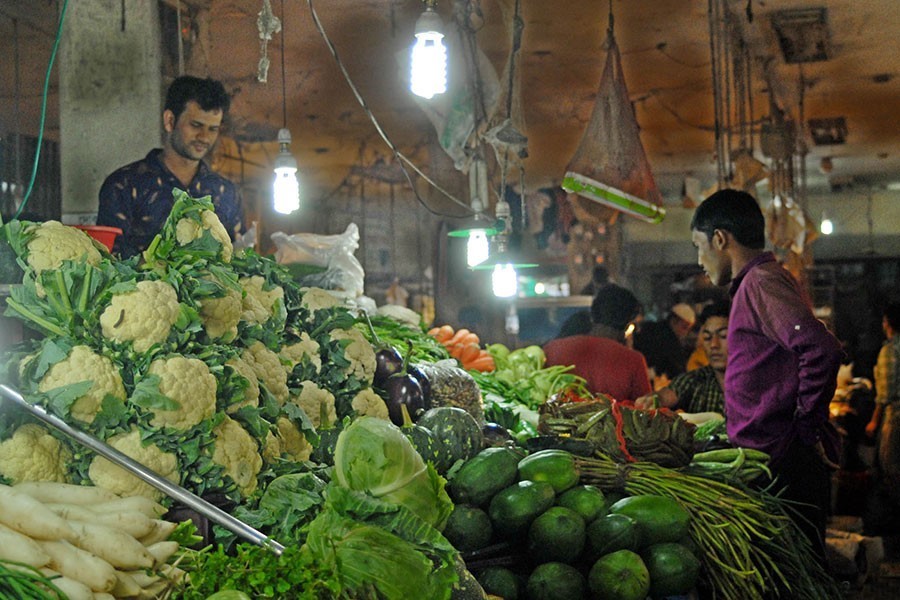
Published :
Updated :

Every year, days or weeks before and during the holy month of Ramadan, there is a big increase in prices of different food items. This year is no exception. Consumers are now paying higher prices for different items than they paid a month or at least two-week back. It is also evident that price spiral started almost three weeks ago. Gradually it has reached a higher level. Though the commerce ministry sits with businesses and traders to contain the spiral of price, the ultimate outcome is disappointing. Consumers have to pay extra prices for different food items during Ramadan. They are also likely to face another round of price hike before the Eid-ul-Fitr-mostly during the last week of Ramadan.
Consumers usually blame traders for artificial hike in prices. It is also alleged that traders go for profiteering by taking the advantage of higher demand of different food items. Retailers pass the buck on wholesalers while wholesalers point fingers to importers as major commodities of Ramdan have to be imported from foreign countries. These include dates, edible oil, chickpea, pulses, sugar and onion. There is no doubt that hoarding and profiteering on the part of unscrupulous traders is a major reason for price spiral.
Nevertheless, the price situation in Ramadan needs to be examined by supply and demand framework. Basic economics clearly mentions that rise in demand enhances price unless it is adequately matched by supply. Again, supply of food items can't be enhanced rapidly and it needs some time. During Ramadan, demand of many food items increases significantly as people want to break their fast with better and tasty foods. There is also an additional demand for healthy and nutritious foods. Again, extravaganza of Iftar and also Sehri is growing fast in the country reflecting a surge in consumerism. All these push the demand for different essentials.
A number of big suppliers definitely take the advantage of the rise in demand. As they control a major portion of supply, they charge more for different items. There is a cascading effect of this price hike. At every stage of the supply chain, price jumps and finally consumers pay the ultimate high price. Rent-seekers are also active in supply chain. From the police to local political cadre, all extract their undue pies and forcing an increase in prices of essentials.
These things are not unknown to the authorities. But, the government has little tools to intervene effectively. Open market or sale from trucks by the Trading Corporation of Bangladesh (TCB) is inadequate and limited. Only a few low-income people can avail of the benefit.
Thus, no single factor is responsible for price hike in Ramadan which is a reality in Bangladesh. A combination of factors like profiteering of importers and traders, rent seeking in supply channels, weak monitoring and regulating capacity of the government and rising spree of a large number of consumers to satisfy their taste buds are major factors to fuel price spiral in Ramadan. These behaviours of both suppliers and consumers don't go in line with the spirit of the holy month when restraining from excess should be the order.
asajdulk@gmail.com


 For all latest news, follow The Financial Express Google News channel.
For all latest news, follow The Financial Express Google News channel.